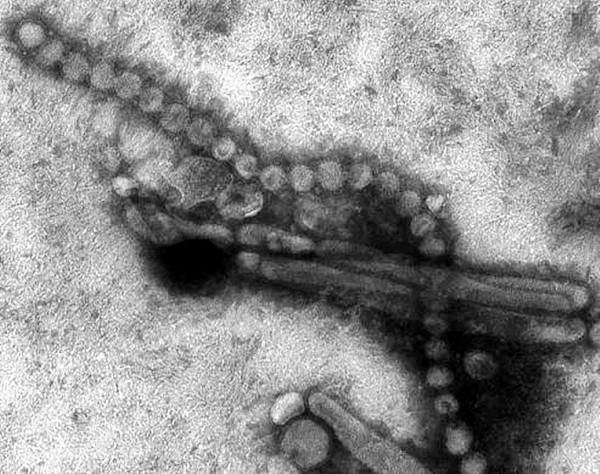By Arthur Dominic J. Villasanta , | April 30, 2017

H7N9 virus
Hong Kong scientists are worried to death about the lethal H7N9 bird flu strain carried by chickens that's killing its host chickens in just one day. And there are signs this strain might be about to make its jump into humans.
The Hong Kong University (HKU), which is at the forefront of the fight against avian or bird flu, said H7N9 has killed more people this season -- 162 from September 2016 to March 1 -- than in any single season since it was first discovered in humans four years ago.
Like Us on Facebook
That greatly worries Prof. Guan Yi, Director of the State Key Laboratory of Emerging Infectious Diseases and the Center of Influenza Research at HKU, and one of the world's leading virologists.
What worries him no end, however, is how fast this strain is mutating.
"We're trying our best, but we still can't control this virus," said Prof. Guan. "It's too late for us to eradicate it."
In December 2016, Prof. Guan and a colleague, Prof. Zhu Huachen (Assistant Professor, School of Public Health at HKU) began noticing something strange about the birds brought to them by a network of scientists who buy birds at poultry markets throughout southern China every week.
"Some of the birds ... they will die within a day," said Prof. Zhu.
The birds that died quickly of H7N9 were all chickens.
This was a surprise, said both experts, because chickens normally live with the virus but don't die from it and have a low capacity to spread it. Prof. Guan and his team discovered the H7N9 strain had mutated into a new form that kills chickens even more quickly.
"Our research shows it can kill all the chickens in our lab within 24 hours. If this latest mutation isn't stopped, more will die," said Prof. Guan.
Thankfully, the strain hasn't been known to spread easily among humans, but Prof. Guan fears a future mutation will do just that.
"Based on my 20 years of studying H7N9 -- the virus itself as well as how the government handles it -- I'm pessimistic," said Prof. Guan.
"I think this virus poses the greatest threat to humanity than any other in the past 100 years."
-
Use of Coronavirus Pandemic Drones Raises Privacy Concerns: Drones Spread Fear, Local Officials Say

-
Coronavirus Hampers The Delivery Of Lockheed Martin F-35 Stealth Fighters For 2020

-
Instagram Speeds Up Plans to Add Account Memorialization Feature Due to COVID-19 Deaths

-
NASA: Perseverance Plans to Bring 'Mars Rock' to Earth in 2031

-
600 Dead And 3,000 In The Hospital as Iranians Believed Drinking High-Concentrations of Alcohol Can Cure The Coronavirus

-
600 Dead And 3,000 In The Hospital as Iranians Believed Drinking High-Concentrations of Alcohol Can Cure The Coronavirus

-
COVID-19: Doctors, Nurses Use Virtual Reality to Learn New Skills in Treating Coronavirus Patients










